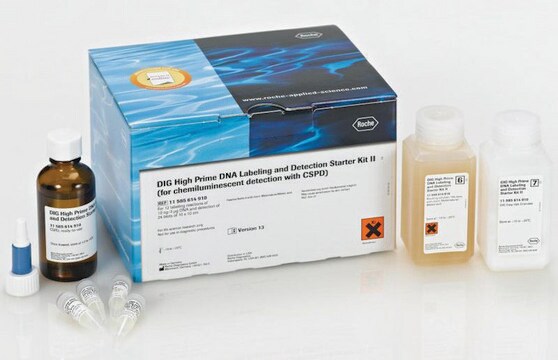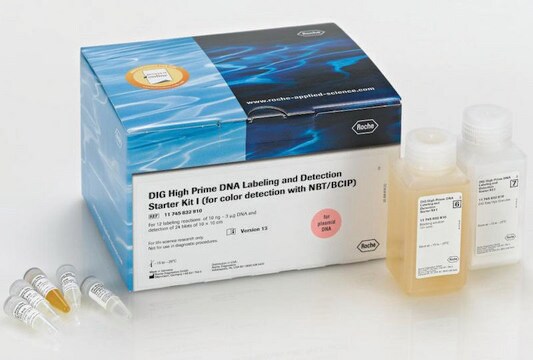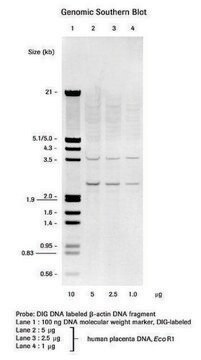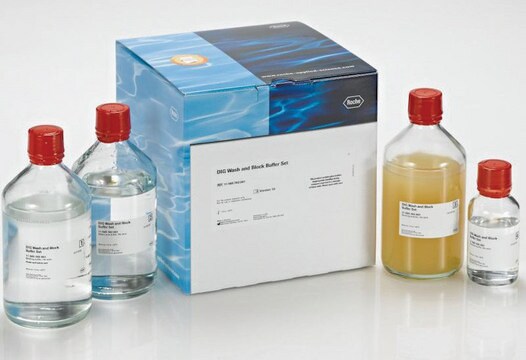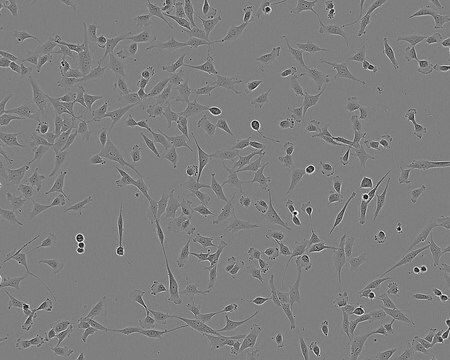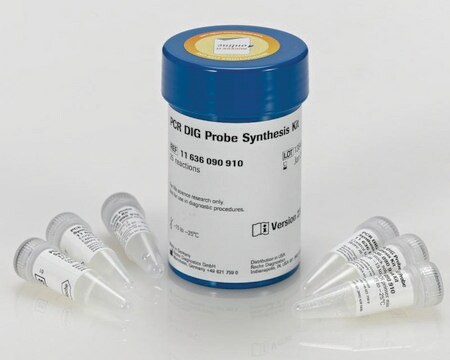Recommended Products
biological source
human nerve
growth mode
Not specified
karyotype
Not specified
morphology
Fibroblast-like
products
Not specified
receptors
Not specified
technique(s)
cell culture | mammalian: suitable
relevant disease(s)
cancer
shipped in
dry ice
storage temp.
−196°C
Related Categories
Cell Line Origin
Human Neural Crest-Derived Non-Neuronal Progenitor
Cell Line Description
LA1-5s is a clonal subline of the cell line LA-N-1 which was established by Seeger et al., (1977) from the primary site of a noncatecholamine-producing neuroblastoma of a 3-year-old female with clinical Stage IV neuroblastoma. The LA1-5s culture consists of large, flat, and tightly adherent cells. They are precursors of Schwann cell/glia/melanocyte lineages arising from the neural crest. This cell line is not tumourigenic in nude mice at a 1,000,000 cell inoculum. The cells can transdifferentiate to a neuroblastic phenotype. The N-myc gene has been reported to be amplified but exhibits very low expression.
LA-N-1 (Sigma catalog number 06041201), LA1-55n (Sigma catalog number 06041203) and LA1-5s (Sigma catalog number 06041204) have been shown to originate from the same patient by STR profiling.
LA-N-1 (Sigma catalog number 06041201), LA1-55n (Sigma catalog number 06041203) and LA1-5s (Sigma catalog number 06041204) have been shown to originate from the same patient by STR profiling.
Culture Medium
EMEM (with non-essential amino acids) and Ham′s F12 (1:1 mixture) + 2 mM Glutamine + 10% Fetal Bovine Serum (FBS)
Subculture Routine
For routine maintenance, split cultures every 2-3 weeks at a 1:10 to 1:100 ratio; 8% CO2; 37 °C. The cells are large, flat, fibroblast-like cells that adhere strongly to the substrate. They form a swirling monolayer with no mounding or multilayering when in culture for only a short time, but will increase in density in the stationary phase as the culture is maintained. The cells can be removed from the substrate by rinsing with PBS, then incubating with EDTA/trypsin (at room temperature). Cells will detach in 5-10 minutes. Cells will reattach within several hours after seeding into a new flask. Population doubling time is approximately 2 days. Cells grow best and are most adherent on a plastic substrate in medium at a pH of 6.9-7.2; they do not tolerate more alkaline pH well. Cultures hold well at high density with periodic medium changes, but may also give rise to neuroblastic variants.
Other Notes
Additional freight & handling charges may be applicable for Asia-Pacific shipments. Please check with your local Customer Service representative for more information.
Certificates of Analysis (COA)
Search for Certificates of Analysis (COA) by entering the products Lot/Batch Number. Lot and Batch Numbers can be found on a product’s label following the words ‘Lot’ or ‘Batch’.
Already Own This Product?
Find documentation for the products that you have recently purchased in the Document Library.
Our team of scientists has experience in all areas of research including Life Science, Material Science, Chemical Synthesis, Chromatography, Analytical and many others.
Contact Technical Service

